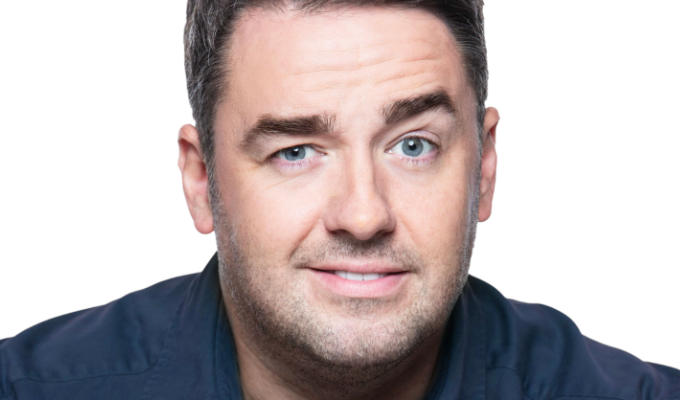But behind the impish smile was a truly impossible figure, at least according to this hefty new biography. Here was a man who would turn on his colleagues with murderous intent, an unapologetic racist, a serial philanderer, a sanctimonious hypocrite and a vain, self-absorbed misanthrope with a heavy persecution complex.
His mental condition stemmed from his insufferable nature, rather than vice-versa, biographer Humphrey Carpenter suggests, arguing that Spike's symptoms were those of split personality, rather than of manic depression - and that some of his antisocial behaviour was as much an act as an illness.
Unhindered by his lack of qualifications, the author goes in for a fair dose of such pop psychology. Spike's brilliantly unique outlook on life is variously explained by: his pining for the childhood innocence of India; the lack of a father figure; the fact he was an Only Child until the age of seven and spent the rest of his life trying to recapture that undivided attention; and his lack of formal education. Good theories, all, if entirely unverifiable.
At one point, Carpenter talks about radio psychiatrist Anthony Clare, who long-studied Spike's mental state. He writes: "If Clare felt that Spike's depressions were not like other people's - that they were chiefly a manifestation of anger rather than sadness, and were more like a schizophrenic's episodes of paranoid delusion, than the low period in the cycle of manic depression - then he said nothing about it." On the other hand, perhaps Clare didn't mention this because he thought nothing of the sort - after all, he only had expert training and close knowledge of the patient to go on.
It isn't surprising that Carpenter seeks to find new angles, as Spike's long and productive life has already been analysed and retold through countless books, many by Milligan himself. When it comes to his war years, especially, it is impossible to better Spike's sublime seven volumes of war memoirs, with their funny, poignant, and honest tales straight from the horse's mouth.
Carpenter- whose previous work includes the rigorous history of Sixties comedy That Was Satire That Was - draws on plenty of other, acknowledged, sources, most notably Pauline Scudamore's comprehensive, if comparatively hagiographic, 1985 biography. Perhaps unsurprisingly, another biographer refused permission to quote him, telling Carpenter to go away and 'write his own book and not draw on anyone else's'. Meanwhile, Spike's long-suffering friend and agent Norma Farnes is currently finishing her first-hand account, but she did have the good grace to allow Carpenter to use whatever of Spike's material he unearthed.
But while the backbone of this book might be little more than a 'cuttings job', it is a remarkably thorough one, raiding a myriad of sources to form a detailed picture of Spike though his life. Carpenter has done his own research, too, and added plenty of flesh to the skeleton.
There are, however, plenty of apocryphal stories, especially from Spike's earlier years, which prove impossible to verify - such as the origin of the word Goons or the nickname Spike. Spike himself took liberties with the facts when he spoke or wrote of his life, as Carpenter often proves - except, that is, in his war volumes, which Milligan ensured were meticulously accurate.
One of the incidents Carpenter casts doubt on is Milligan's well-publicised 1952 attempt to kill Goon Show co-star Peter Sellers, who was living in the same block of flats. Spike snatched a potato knife and smashed through his neighbour's glass front door shouting: "I've come to kill Peter Sellers."
The incident, widely held to be the point of Spike's first breakdown, is not disputed - but the fact he used a blunt knife, referred to Sellers in the third person, and only harmed himself leads the author to conclude this was, at least in part, play acting.
But there is no doubt Spike's fury could erupt violently. When his play The Bed Sitting Room was playing in the West End in 1964, he threatened to kill co-star Graham Stark, the book reveals. He called his wife at home, saying "Tell your husband that if he comes to the theatre tonight I will shoot him." She was left in no doubt he was serious, even though Spike managed to convince the police he wasn't.
This may be strange behaviour from a man who declared himself a pacifist, but nothing comparde to a 1974 case in which Spike - like the Tony Martin of his day - shot a 16-year-old in his back garden after a spate of vandalism. But it was only with an air-rifle, and 'Gunner Milligan' was given a conditional discharge after admitting causing actual bodily harm.
Other unpleasant aspects of Spike's character aren't glossed over either, especially his racism. "I grew up believing that these people, white people, were superior to everyone else" he said when he was nearly 80.
His Q5 series in 1969 contained a number of racist gags, with overt references to "wogs" and Jews, and in the same year even The Sun was aghast at the line, uttered by a 'browned-up' Spike in the Johnny Speight-written Curry and Chips: "I leave Pakistan because there are too many wog. I came to England and there are still too many wog."
Spike even refused to take the oath of allegiance to become a British citizen, despite Prince Charles's nagging, because he didn't want to be lumped in with the "Pakistanis and Jamaicans", and felt that his time in the Army was proof enough of his dedication to the Crown.
Stubborn doesn't even begin to describe Spike's pig-headedness. He couldn't take criticism - going "totally berserk" at any perceived plight, and couldn't bear to share the credit with others, as evidenced by his shoddy treatment of the Goon Show co-writers, whose contribution he has successfully erased from history.
The self-obsession sometimes passed over to the bizarre, such as the time he wrote to Prime Minister Harold Wilson complaining of a burst ballpoint pen that ruined his shirt.
Spike was also vehemently opposed to population growth, though that didn't stop him spreading his own seed, fathering four legitimate and two illegitimate children.
The products of Spike's affairs have been hailed as revelations in some advance publicity about this biography, but they are nothing new - as the reproduction of a 1991 newspaper front page proves.
Carpenter did, however, "after financial terms had been agreed" secure an interview with the illigitimate son, James, and his mother Margaret - though the result tells us more about this pair than it does Spike.
His family are, apparently, still battling over Spike's estate. But his real legacy is his body of work - and whatever your feelings towards this most unlikeable man after reading this comprehensive tome, that will always remain untarnished.
Steve Bennett
August 4, 2003
Published: 22 Sep 2006






